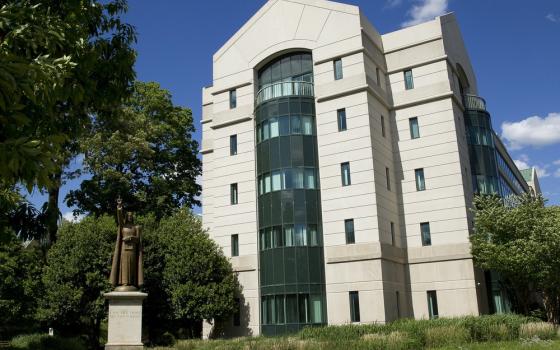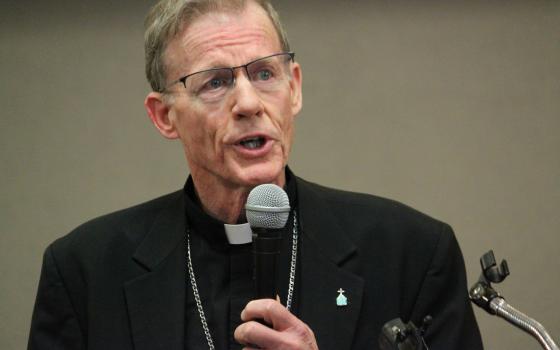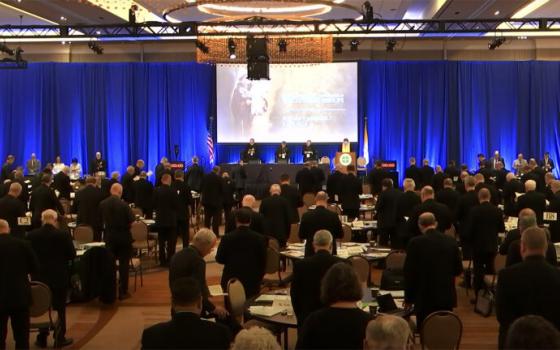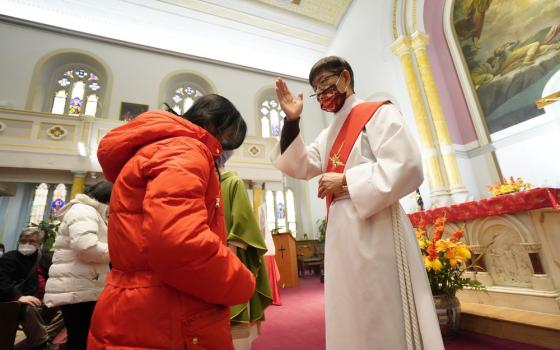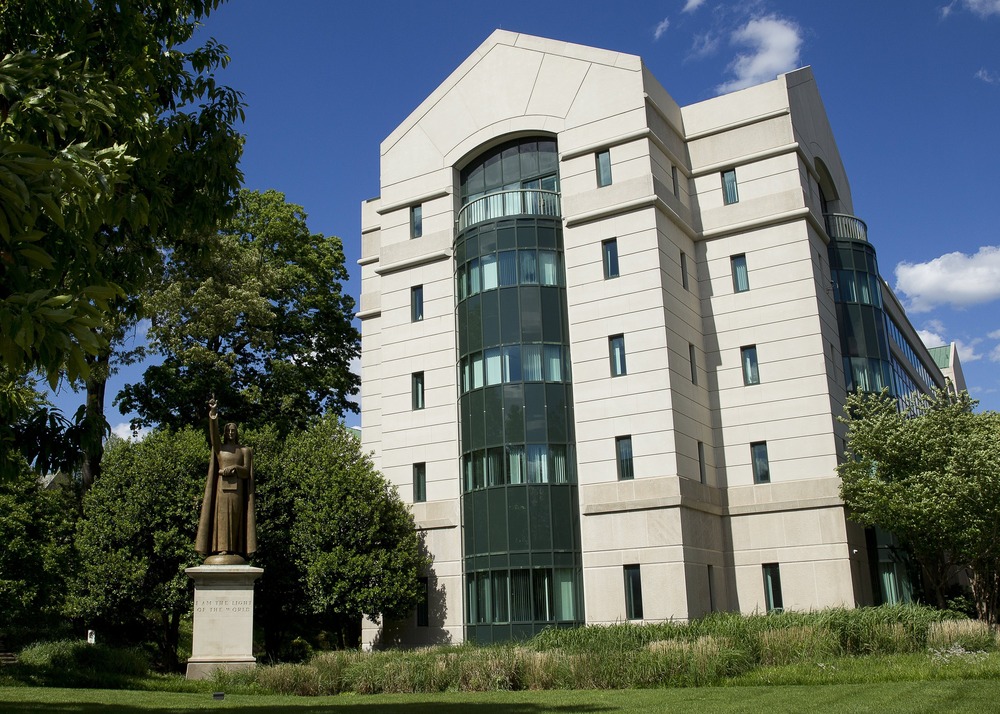
The headquarters of the U.S. Conference of Catholic Bishops is seen in Washington in this 2017 photo. (OSV News/Tyler Orsburn, CNS file)
Jill Rauh, the executive director of a newly created secretariat at the U.S. Conference of Catholic Bishops, pledged to support the work of the Catholic Campaign for Human Development, the USCCB's domestic anti-poverty initiative, after some expressed concern about the future of that project following some staff layoffs.
Rauh oversees the work of the new Secretariat of Justice and Peace, announced Aug. 6. The new office will serve four bishops' committees to advance the social mission of the church through formation, policy analysis, advocacy and outreach.
In an interview, Rauh told OSV News that the secretariat will continue "advocating for just policies so that we can promote human dignity and flourishing."
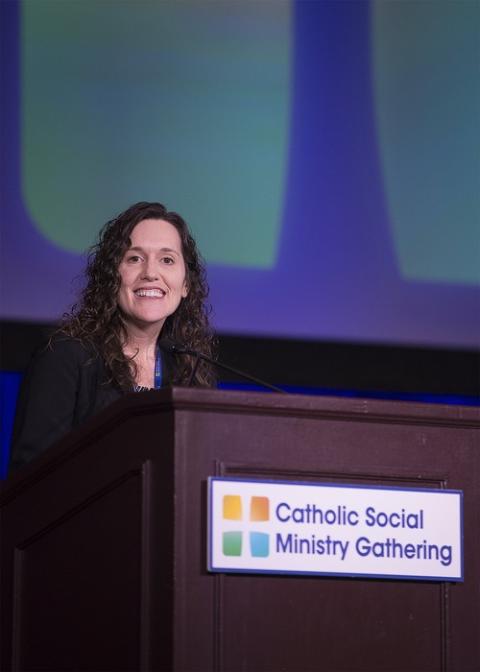
Jill Rauh, recently named executive director of a newly created secretariat at the U.S. Conference of Catholic Bishops, is pictured Jan 25, 2020. The new Secretariat of Justice and Peace, announced Aug. 6, 2024, will serve four bishops' committees to advance the social mission of the church through formation, policy analysis, advocacy and outreach. (OSV News/CNS file, Tyler Orsburn)
In late June, the USCCB laid off an unspecified number of employees as part of a reorganization of the Department of Justice, Peace, and Human Development, a key department tasked with promoting awareness of and advocacy for Catholic social teaching in the U.S. and abroad. The conference did not specify the number of employees impacted, although some estimates were about a dozen people, who included employees working for CCHD, which was part of that department.
Founded in 1969 as the National Catholic Crusade Against Poverty, CCHD has been moved to the USCCB's Office of National Collections, but the Secretariat of Justice and Peace will continue to collaborate with the anti-poverty initiative, Rauh said.
"One thing that I am happy to share is that the secretariat will continue to work with our colleagues in the Catholic Campaign for Human Development to support their essential work to address poverty," she told OSV News. "We will collaborate with them. We will continue to receive instruction from the staff and committee of the Catholic Campaign for Human Development. CCHD is an important way for Catholics to live out their faith and to engage in their communities."
Before her new appointment, Rauh was director of education and outreach for the Department of Justice and Peace, from 2017 to 2024.
The Secretariat of Justice and Peace will serve the Committee on Domestic Justice and Human Development, the Committee on International Justice and Peace, the Committee for Religious Liberty and the Ad Hoc Committee Against Racism.
Advertisement
At the U.S. bishops' fall general assembly in 2023, the bishops voted to replace the USCCB's current strategic planning cycle with a mission planning process intended to streamline, reduce spending and remove silos at the USCCB, although concerns were raised at the time about where new resources would come from.
Rauh said that "what we are doing moving forward is, instead of having a separate office, those staff who focus on education, formation, communication, of social mission, are infused into the other offices," with their cooperation intended to evoke "the connections between our faith, the call of Scripture, our church's social mission, and the action to advocate, to work to address poverty."
"Sometimes there can be a misunderstanding that we're either about the prayer or the action, but as people of faith, we're about both of those," she said of the secretariat's aim. "We're about a united approach, that the work that we do is striving to change those unjust structures to work for justice. It is grounded in our identity as Catholics and as people of faith who have encountered the living Christ who cares for and accompanies the poor" and to "make sure that we aren't siloed in our approach."



